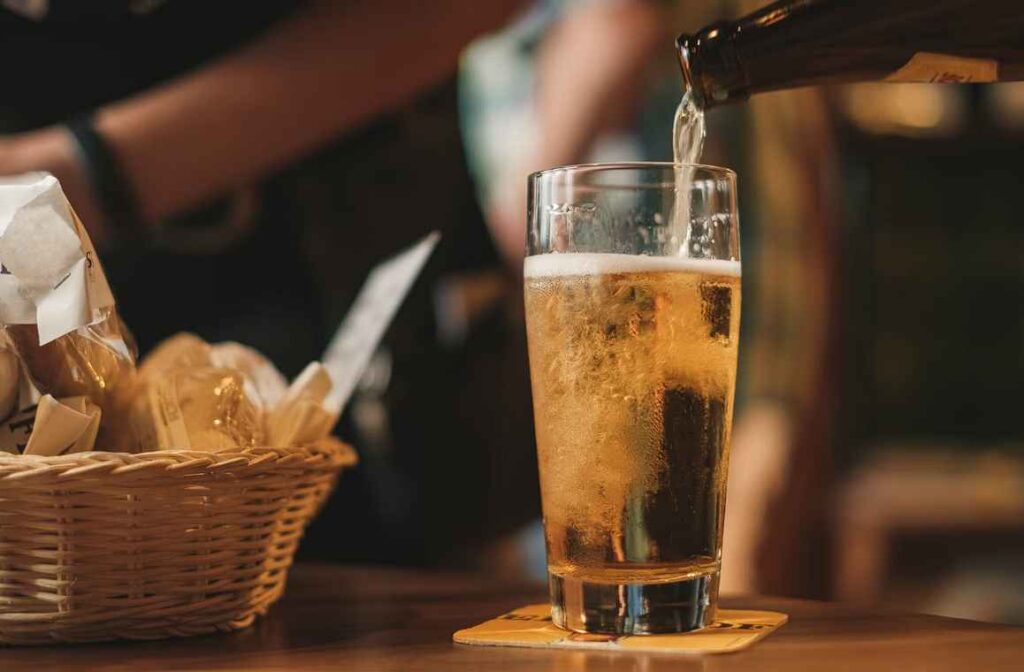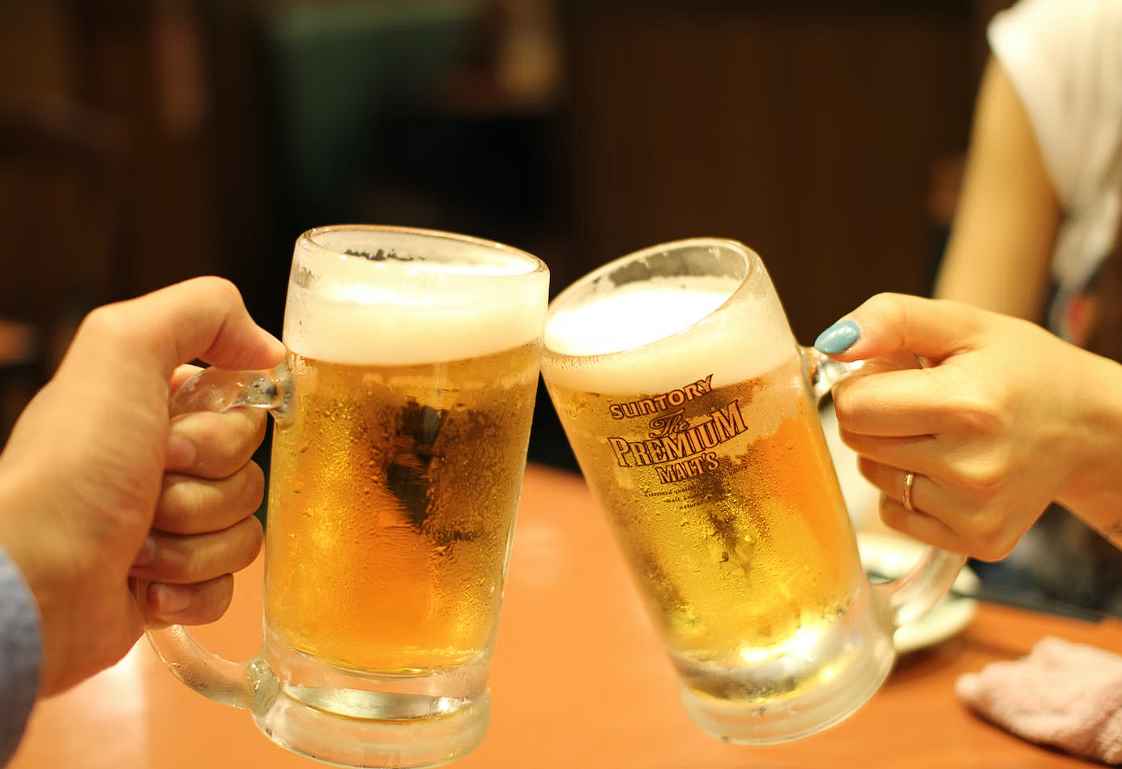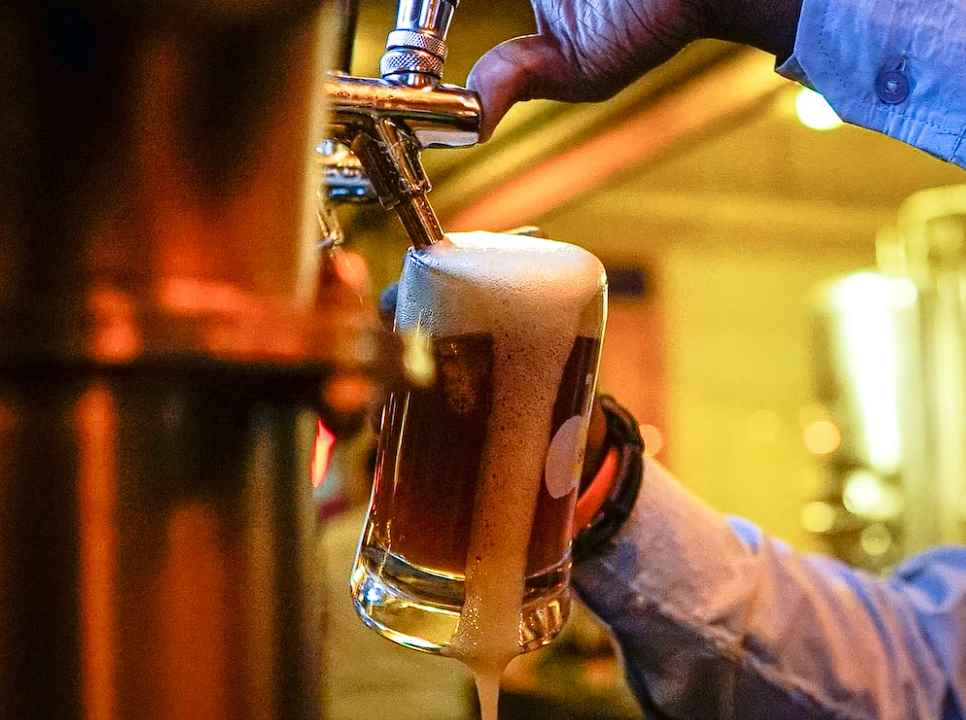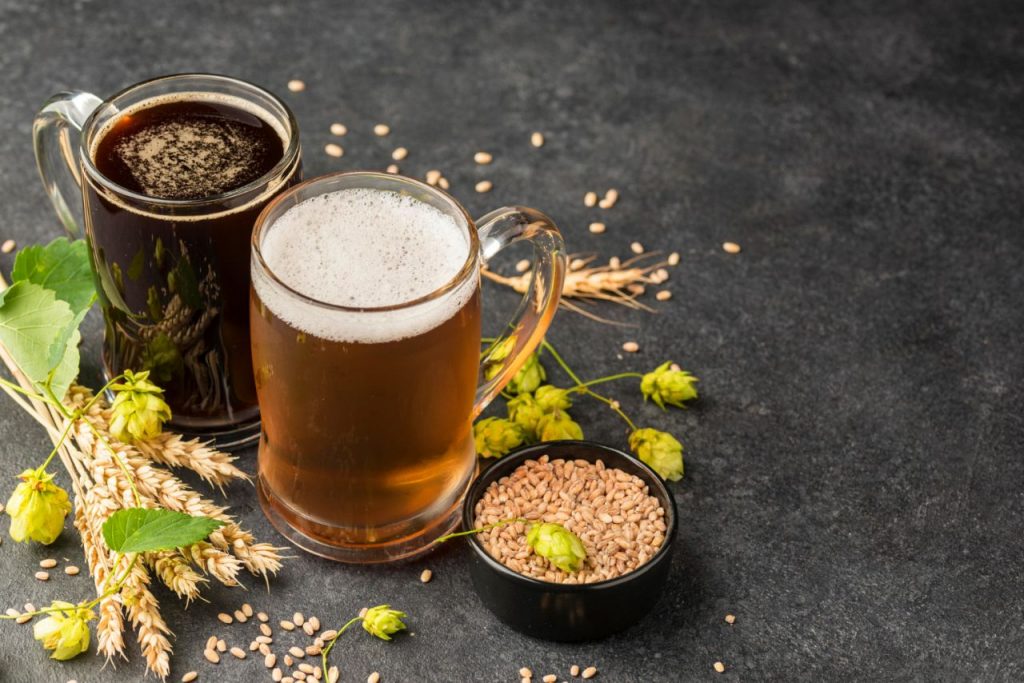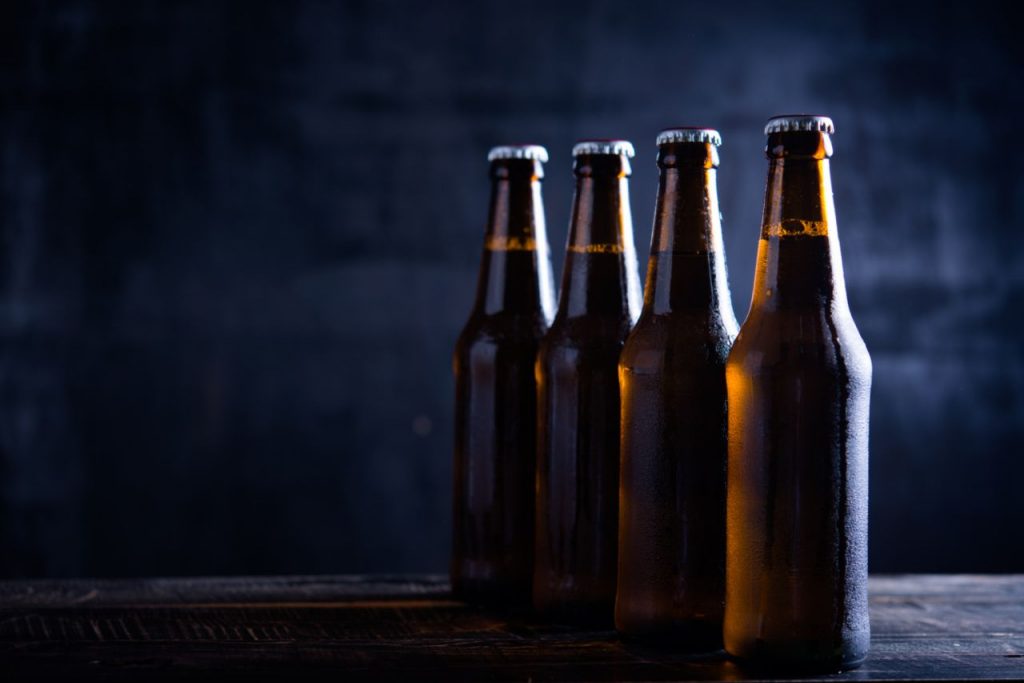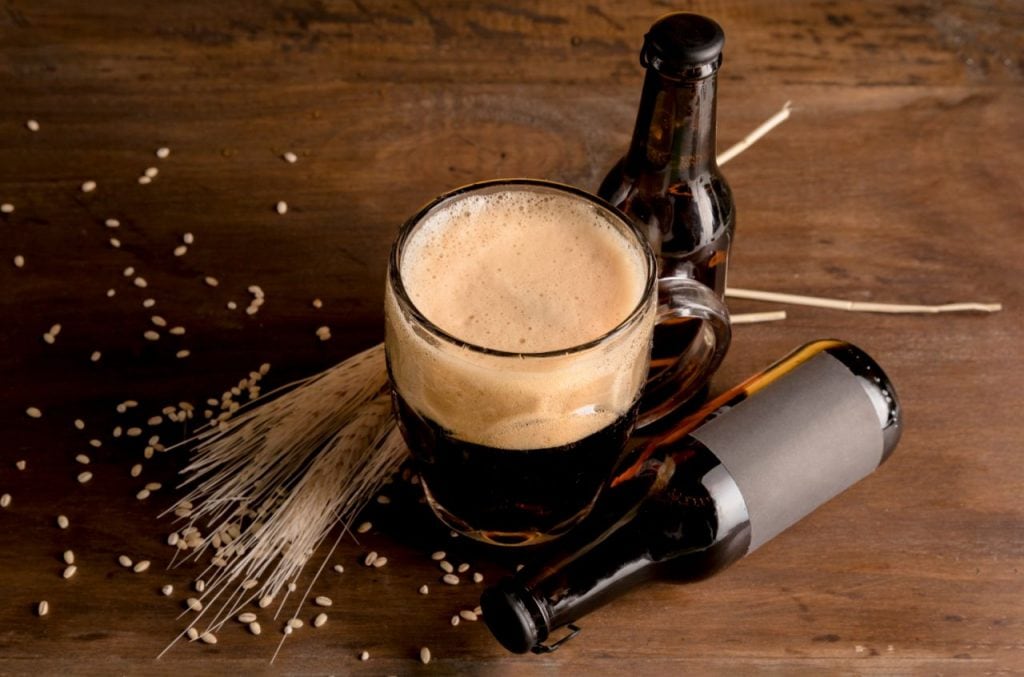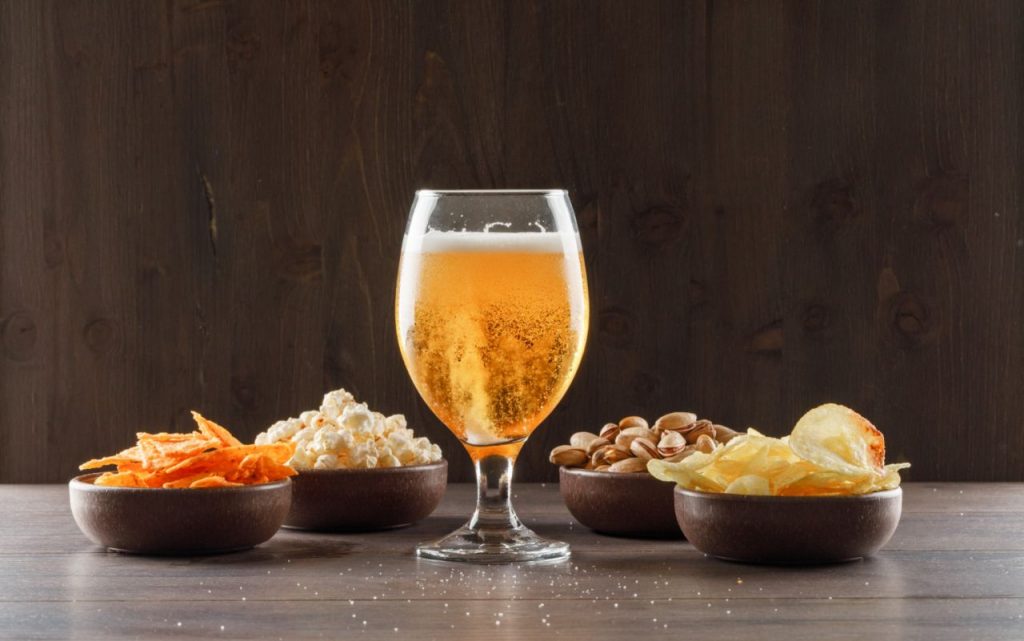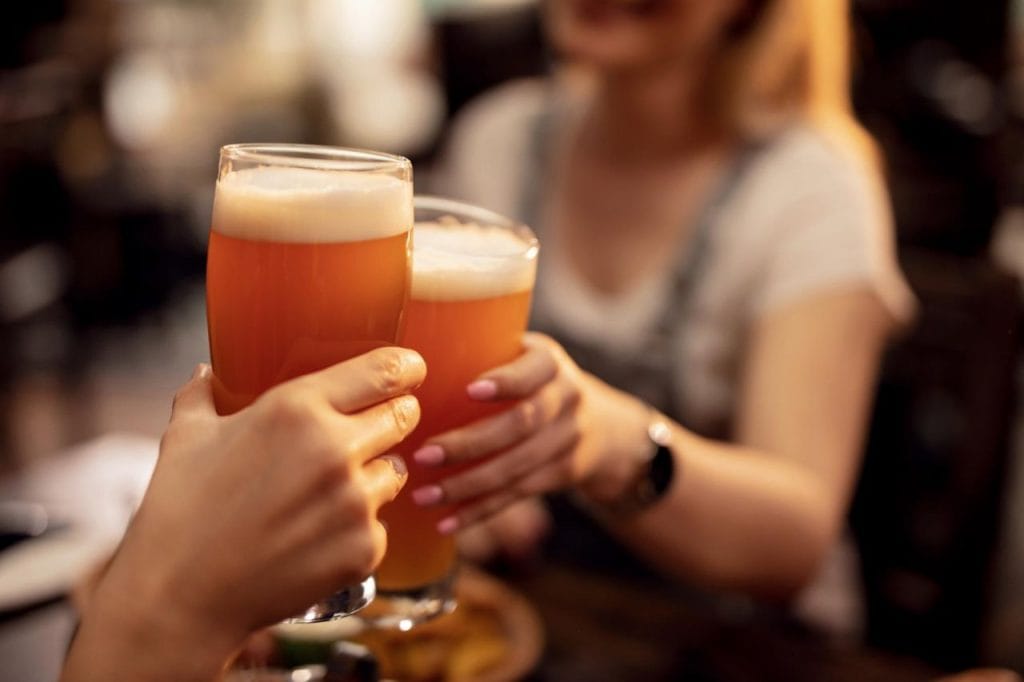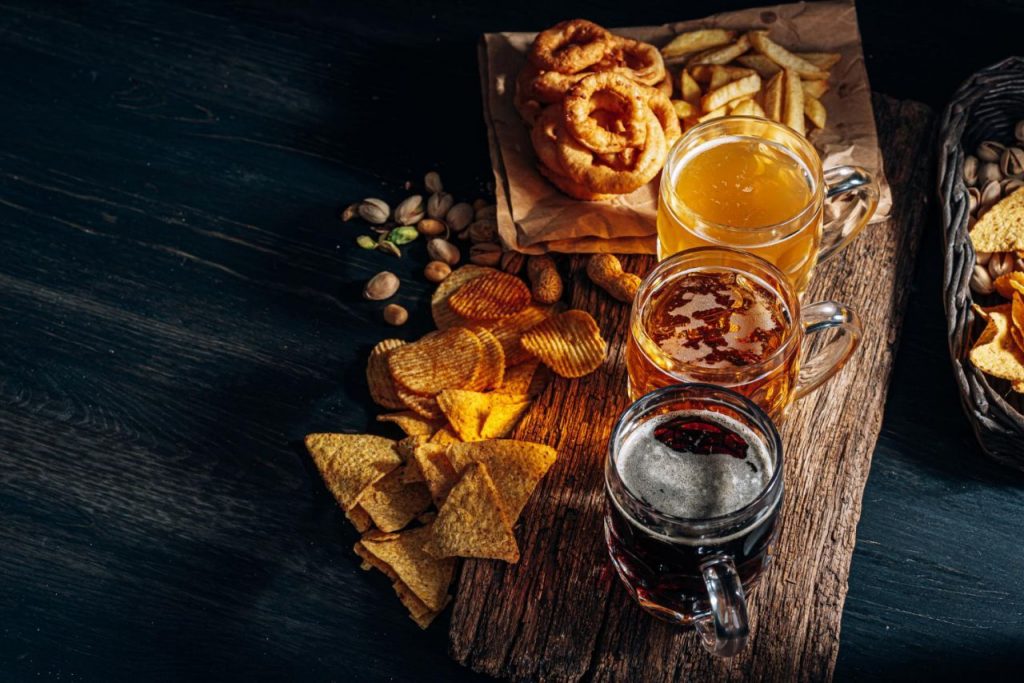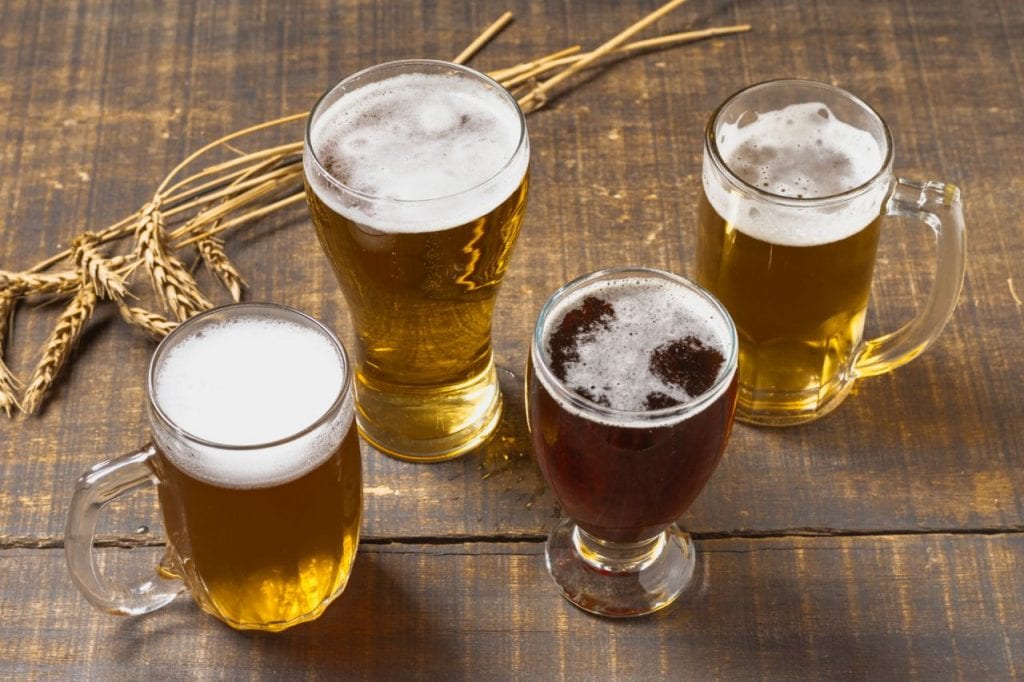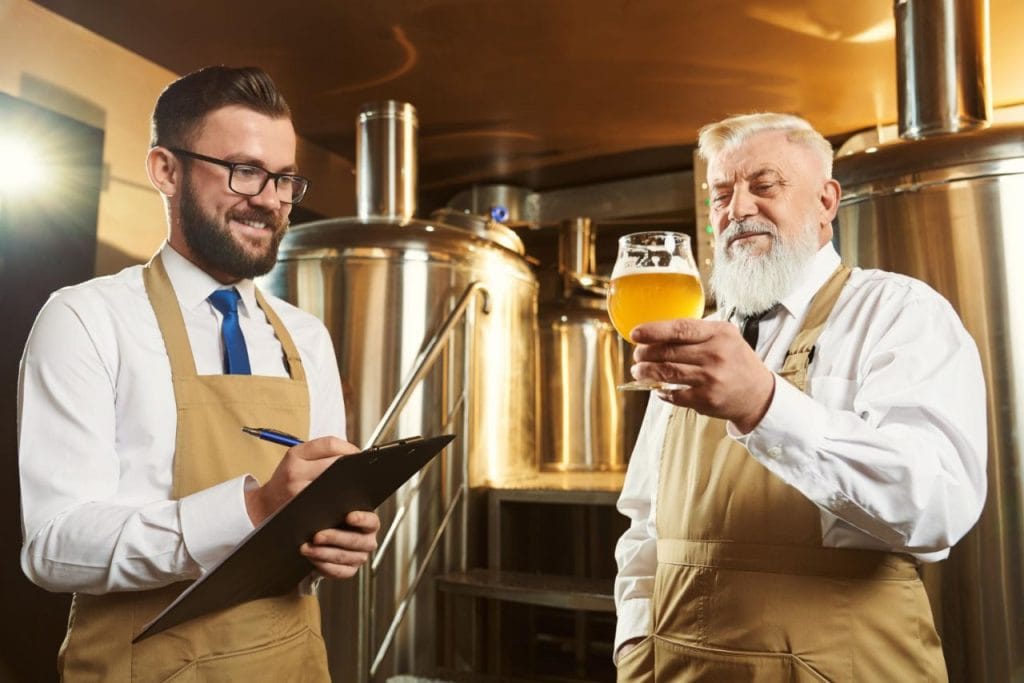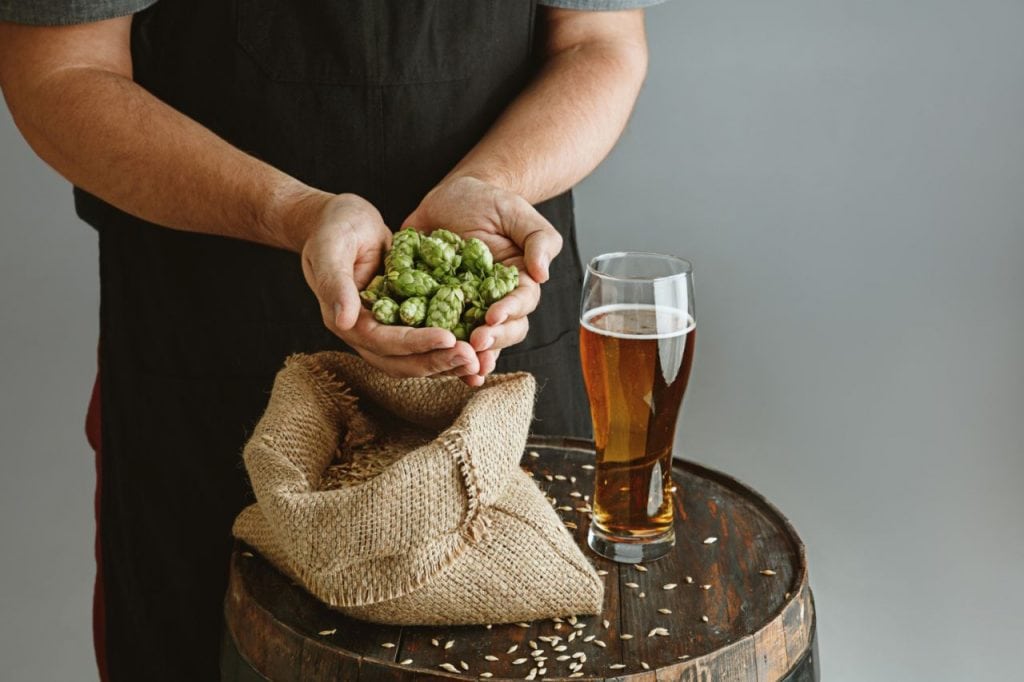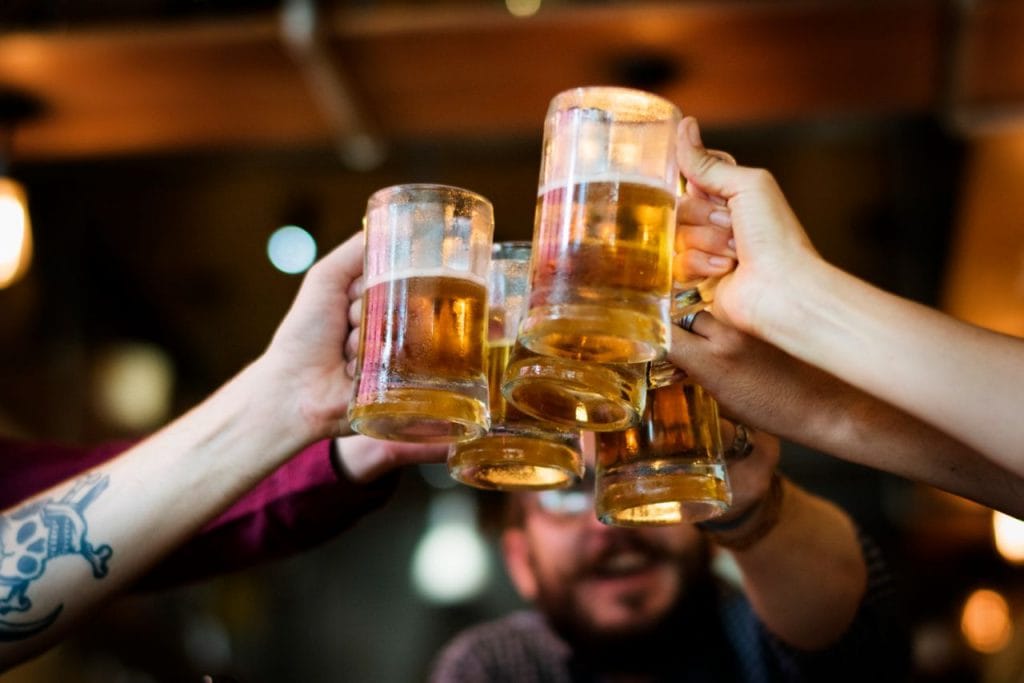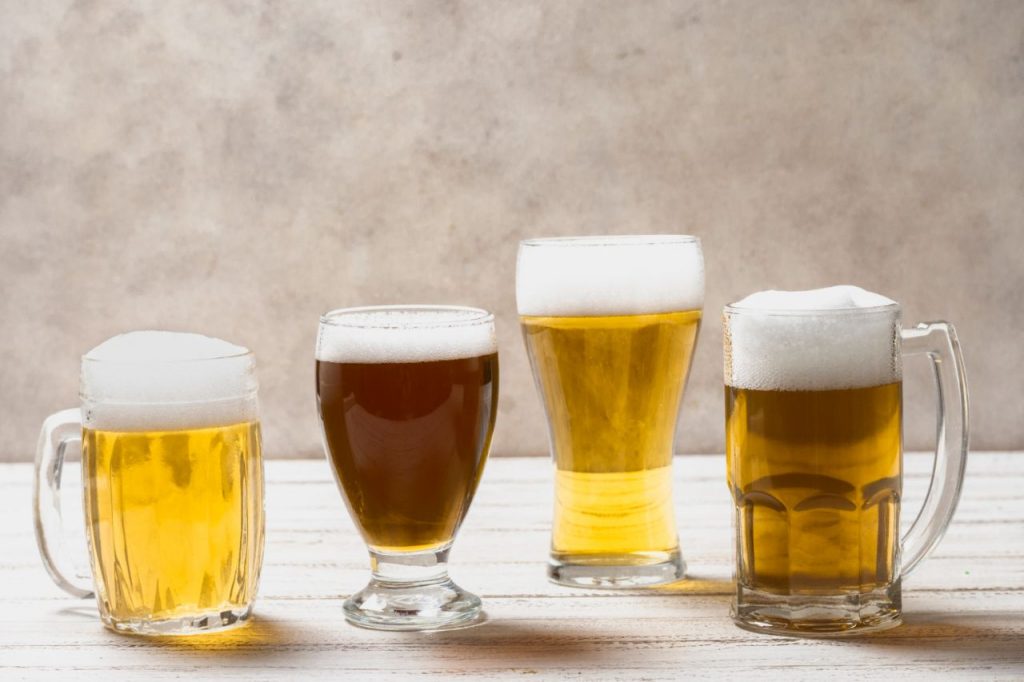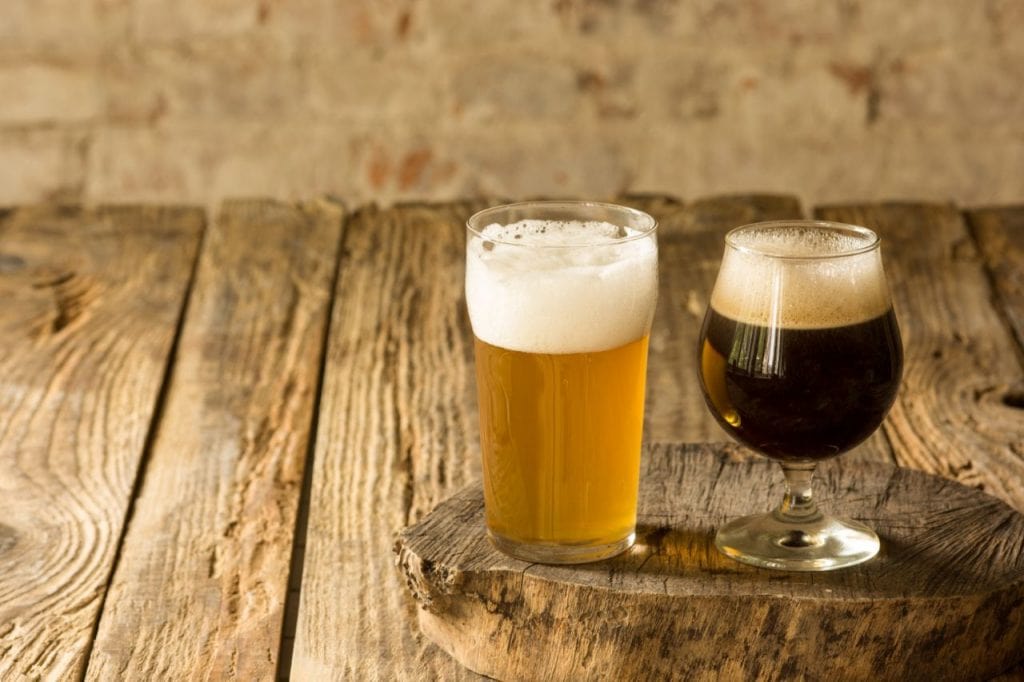It's no secret that craft beer is incredibly popular, particularly among the millennial generation. From IPAs to well-crafted stouts and lagers, today's selection of brewery-specific brews offer something for every taste bud - and now you can find craft beers in almost any bar or restaurant. But what really makes craft beer so appealing?
The ever-changing beer industry has sparked a wave of new ideas that have entirely altered the craft beer industry. The generational shift is also enticing young people to sample craft beer. Brewers must now pay attention to this growing market.
In this post, we'll dive into why Millennials are enamoured with craft beer, highlighting its unique flavour profiles and diabolically innovative brewing techniques. So grab your favourite pint glass – it’s time to discover why young people everywhere love a good cold one!
Whether you're a beer lover or a spirit enthusiast, we've got something special waiting for you at Tar Barrel – guaranteed to tantalize your taste buds.
In What Ways Does This Impact the Market as a Whole?
New and old breweries must produce enough high-quality beer with a wide range of flavours to satisfy the expanding demand. These cutting-edge drinks support their goal of working toward a more sustainable environment, which will continue attracting new customers for a long time.
Brewers worldwide will need to create new beer varieties to meet the needs of their growing consumer base, and the newest generation of craft beer drinkers will play a vital role in this process.
The Popularity Of Small-Batch Beers Continues To Rise
In the past two years, there has been a rise in craft beer consumption among those under the age of 30. The improved quality of craft beer is the primary draw, but some drinkers are making the transition for the novelty factor.
Outside bars and restaurants, beer drinkers have a wide variety of options for satisfying their craft beer cravings.
You Are Finding Why It Is Essential
Four in ten people between 18 and 30 believe that a person's preferred beer style reveals significant insights about that person's character.
Consumers care not just about the company's mission but also about the backstory behind creating these beverages. Six in ten millennials are influenced to buy a specific beer brand because of the brewer's evident enthusiasm for their product.
The Value Of Sustainability
Even among senior citizens, half of the respondents believed that a commitment to social responsibility improved a product's image.
Participants consider craft beer more environmentally friendly than commercially available beer and want to know more about the breweries and the materials they use.
Consumption Of Beer As A Social Activity
As a result, millennials are increasingly turning beer consumption into a communal activity by seeking it out at parties and festivals. This is why breweries are increasing at an alarming rate, as owners compete for a slice of the millennial generation's disposable income.
In response, breweries are enhancing the beer-drinking experience by putting on themed events, bringing in food trucks, and holding trivia nights in the hopes of luring millennials out for a good time while they sample traditional and cutting-edge beers. Combine it with the upscale atmosphere created by the brewery' decor, and you have a place where people from all walks of life can feel at home.
This new generation has revitalised beer's acceptance by all drinkers, and the industry's major players would do well to take note. Millennials are often talking about where to find the best new craft beers and food, so these businesses need to provide both.
The business world will be able to learn about the tastes of these folks by perusing their tweets and Instagram posts. If they want their firm to survive, they need to take the advice of the current generation. In that case, craft breweries will take centre stage, and the more prominent breweries may see a decline in their market share if they stick to supplying their older products.
Millennial Gen Beer Drinkers: What You Need to Know
Generation Y, millennials were born between the early 1980s and 2000s. Having grown up with the Internet and a portable computer in their pockets, this generation has different expectations when it comes to the kinds of items they'll buy.
Brands are working hard to discover new ways to communicate with millennials, who regard traditional advertising as false and inauthentic.
Gen Y Considers Craft Niche, Non-Corporate, Artisanal, And Regional.
Millennials are cost-conscious shoppers, always looking for a good deal and never above clipping a coupon when searching for the perfect brew. They're looking for quality, too. The rising popularity of this trend in wine consumption is real. Not only have millennials altered our vocabulary, but they have also altered our shopping habits.
Small, independent businesses, limited runs of products, and precise craftsmanship are the three most common synonyms for "craft." Better quality, greater variety, constant availability on-premise, greater flavour possibilities, and more seasonal offers are all reasons to drink more craft; on draught, price, and complementing food are also important.
There is a growing trend among millennial drinkers of craft beers for the phrase "locally made" to be of more significance.
Millennials Maintain Relationships Through Online Platforms.
As a result, millennials increasingly rely on their online social circles to make purchases: If asked whether they like a brand more or less because of its social media presence, 34% of consumers say "when."
When making a purchase, the most influential aspect is word of mouth and social media recommendations from friends and family.
More than 60% of Gen Yers will likely become loyal customers if a brand interacts with them through social media. They want to work in tandem with businesses to design new products and services, with 42% showing an interest in doing so.
Millennial Gen Is Looking For High Quality, Not Necessarily Low Price
Due to stagnant wages, fewer available jobs, and rising tuition costs, millennials' discretionary income has shrunk.
Almost everyone (99%) says that a beer's flavour and freshness are essential qualities to look for when purchasing a craft brew. Craft beer is a luxury that many can afford.
Products Are Less Important Than Experiences
Homebuying, marriage, and starting a family are among the many things these people put off until later in their lives.
Rather than remembering a company by its name or logo, millennials will recall their experiences with the company. Sixty-one per cent of women ages 21 to 34 report an increasing frequency of pairing craft beer with meals.
Young adults are more likely to buy from companies that give back to their neighbourhoods. Seventy-five per cent of respondents agreed it's more vital for a business to contribute to society than only making money.
Millennials Are Known for Their Healthy, Well-Rounded Lifestyle
Millennials pay close attention to the products they use. Since then, they've made strides toward improved diet and health. 61% of people who consume craft beer weekly report pairing it with food. Lifestyles that prioritise health and fitness are increasingly popular.
The retail sector is also seeing a shift in the way millennials shop. They hope to increase their spending on natural and organic goods, potentially setting the pace for the market. While the soda industry has struggled recently, people are reducing their consumption.
For example, "GMO-free" and "locally sourced" labels carry significantly more weight with millennials than with their parent's generation. Similarly, many millennials said they would be more likely to buy a product if they saw evidence of these traits and benefits. Many millennials cite a desire to appear more responsible or health-conscious to purchase products with these characteristics.
Gen Y Likes To Try New Things
Sixty-nine per cent or more of millennials identify as adventurers. Customers are dedicated to brands that present them with unique opportunities. 47% of millennial guys who buy craft products had never seen or heard of the brand before.
Weekly craft drinkers among millennials sample 5.1% more brands each month than non-drinkers. Only 15% of consumers sample that many brands monthly. Breweries that want to keep their customers from exploring other brands must have a wide range of beers.
Knowledgeable In The Use Of Modern Technology
Technological advancement is a benefit enjoyed by today's millennials. With a smartphone, you can do just about everything with a few finger taps. More than two-thirds of millennials use social media daily, so even if they drink alone, they are likely to broadcast their behaviour to the world.
The millennial generation is just as likely to share their drinking experiences with beer or hard liquor online as they are with food.
When it comes to choosing an alcoholic beverage, millennials take into account the recommendations of both their peers and professionals.
Most millennials and Gen Xers place a high value on wine critics' opinions, but just a fifth of baby boomers share this perspective. They put more stock in the views of their peers than earlier generations and are willing to take the word of strangers when reading product reviews. They belong to the generation that has grown up comparing costs and reading reviews before purchasing. They do this both online and at brick-and-mortar stores when considering a purchase.
Conclusion
Beer has become more of a social pastime for millennials, who seek it out at gatherings like concerts and festivals. Six out of ten millennials said that a brewer's obvious passion for their beer makes them more likely to purchase that beer. Respondents believe that craft beer is better for the environment than mass-produced beer, and they are interested in learning more about the history of the breweries that produce it. Beer consumption has seen a resurgence thanks to the millennial generation. Reading their tweets and Instagram postings will give the business sector insight into their preferences.
Breweries with a larger market share could lose ground if they continue to sell outdated products. Sixty-plus percent of Millennials say they are more likely to become loyal consumers if a brand engages with them on social media. They seek collaborative partnerships with companies to develop innovative goods and services. Millennials are more likely to patronise businesses that invest in the communities in which they operate. More and more people are opting for lifestyles that put an emphasis on health and physical activity.
They are as likely to write about their experiences with beer or hard liquor as they are with meals. Younger people are more likely to trust the opinions of complete strangers expressed in online product evaluations than older people. A smartphone makes it possible to accomplish nearly any task with the tap of a finger.
Content Summary
- The craft beer industry was completely revolutionised by the idea wave that was created by the dynamic beer market.
- The demographic shift is also drawing in new beer drinkers.
- Breweries can no longer afford to ignore this expanding consumer base.
- Breweries, both new and old, need to increase output of high-quality beer in a variety of flavours to keep up with the rising demand.
- Their cutting-edge beverages help them achieve their mission of creating a greener world, which ensures that they will continue to gain new customers for the foreseeable future.
- The newest generation of craft beer enthusiasts will be instrumental in helping breweries around the world come up with new beer styles to satisfy the wants of their expanding customer base.
- There has been a consistent uptick in the demand for craft beers made in limited quantities.
- There has been a surge in the consumption of craft beer among people under the age of 30 in the past two years.
- The higher quality of craft beers is the main lure, but some consumers also enjoy them for their uniqueness.
- There are several places besides bars and restaurants where beer lovers can slake their thirst for craft brews.
- You're beginning to understand why it's so crucial.
- Among adults aged 18 to 30, 41% think a person's preferred beer style can shed light on their personality.
- Customers are interested in more than just the company's stated goals; they want to know the whole narrative behind how these drinks came to be.
- Six out of ten millennials are swayed to purchase a certain beer brand because of the brewer's obvious passion for the product.
- Half of all respondents, even retirees, said that social responsibility helped a product's reputation.
- In contrast to mass-produced beer, participants rate craft beer higher on the environmental friendliness scale. They are interested in learning more about breweries and the ingredients used.
- Because of this, young adults are increasingly seeking out beer during events like parties and festivals as a way to bond with their peers.
- When you add in the classy vibes from the brewery's furnishings, you've got a setting where individuals from all walks of life may feel at ease.
- The big actors in the beer market would be well to take note of this new generation, which has revitalised the acceptance of beer among all drinkers.
- Businesses catering to millennials must, therefore, stock a wide variety of craft beverages and innovative cuisine.
- The business sector can gain insight into these people's preferences by reading their tweets and Instagram posts.
- It's imperative that they listen to the current generation if the company is to thrive.
- If this happens, small breweries will gain prominence, while larger breweries that continue to distribute their older products may face a drop in their market share.
- "Generation Y," sometimes known as "millennials," refers to those who entered the world between the early 1980s and the early 2000s.
- The expectations of this generation are different from those of previous generations since they have always had access to the Internet and a portable computer in their pockets.
- Brands are making great efforts to find novel channels of communication with millennials, who view conventional advertising as dishonest and insincere.
- As a generation, millennials are known for being thrifty shoppers who will not hesitate to use a coupon to save money when on the hunt for the best beer.
- Furthermore, they value high-quality products.
- A growing number of people are adopting this practice as a common way to enjoy wine.
- The millennial generation has changed not only our language but also our consumption patterns.
- The word "craft" can mean a variety of different things, but it's most often associated with locally owned enterprises, unique items, and high levels of precision.
- There are a number of benefits to drinking craft beer, including higher quality, more options, year-round availability, a wider range of flavours, and special seasonal offerings, as well as the convenience of drinking it on tap, lower prices, and the ability to pair it with a wider variety of foods.
- An increasing segment of craft beer consumers, millennials, place more value on "locally made" claims.
- Sixty-plus percent of millennials say they are more inclined to buy from a company that engages with them on social media.
- Forty-two percent of them are eager to collaborate with companies on the creation of new goods and services.
- The discretionary income of millennials has decreased as a result of stagnant salaries, fewer available jobs, and increased college costs.
- When shopping for a craft beer, nearly everyone agrees that taste and freshness are the most important factors to consider.
- These days, a lot of people can afford the extravagance of drinking craft beer.
- Many of these individuals delay adulthood in a variety of ways, including homeownership, marriage, and having children.
- Millennials are less likely to remember a brand's name or emblem than they are to recollect specific moments from their interactions with the brand.
- Sixty-one percent of twenty-something to thirty-four-year-old females said they drink craft beer more often with their meals.
- Companies that invest in their communities have a greater chance of attracting the attention of today's millennial consumer.
- Seventy-five percent of respondents believed that making a social impact is more important than making a profit.
- In terms of consumer goods, millennials are very picky.
- They have made great achievements since then in terms of diet and general wellness.
- Pairing meals with craft beer is popular among craft beer drinkers (61%).
- Lifestyles that place a premium on physical well-being are on the rise.
- Millennials are changing the retail industry.
- By increasing their purchases of organic and all-natural products, they seek to start a trend in the market.
- Even though the soda business has been having a rough go of it lately, consumers are cutting back.
- Labels like "GMO-free" and "locally sourced" are much more important to today's consumers than they were to their parents' age.
- Many millennials have expressed a desire to purchase products that exhibit these qualities and benefits.
- However, only 15% of consumers really try that many brands monthly.
- To dissuade its fans from trying other brands, breweries need to have a wide variety of beers.
- competent in the use of contemporary technological methods
- Millennials today get to take advantage of the fruits of technological progress.
- You can perform almost anything with the tap of a finger on a smartphone screen.
- Even if they are drinking alone, the vast majority of millennials (almost two-thirds) will share their antics on social media.
- The millennial generation is just as likely to blog about their alcoholic beverage of choice as they are to document their culinary exploits.
- As they shop for a drink, millennials consider the advice of both their peers and experts.
- The majority of millennials and Gen Xers place a high weight on the opinions of wine reviewers, whereas just about 20% of boomers feel the same way.
- They are more likely to trust the opinions of complete strangers expressed in online product reviews than members of older generations.
- They are part of the first generation raised to shop smart and read reviews before making a purchase.
- This is something they do prior to making a purchase anywhere, whether it be online or at a physical store.
Frequently Asked Questions
Craft beer is better than domestic beer because it is not mass produced, so more time is focused on taste and not watered down. Craft beer contains more alcohol, about 5-10 percent alcohol by volume vs 3.5 percent alcohol ABV offered by domestic beers. Craft beer offers more health benefits than your average red wine.
Craft beer has a richer and more distinct taste than watery mass produced beer. Most craft brewers are passionate about the taste and flavour of their beer. So they invest the time and energy required to maintain or improve the quality of the beer instead of concentrating on huge marketing campaigns.
A craft beer could have as much as 0.9 ounces of alcohol per serving rather than . 6 like in a typical beer. As a result, you could get drunk faster and stay impaired for longer.
Many craft beers are much higher in alcohol, and some brewers actually ramp up the alcohol intentionally during the brewing process. This high alcohol volume can take drinkers by surprise, increasing the odds of alcohol abuse and dependence.
As you probably know, bitterness is pretty much all about hops. Hops are the flowers, or cones, of a plant called humulus lupulus. Hops help to keep beer fresher, longer; help beer retain its head of foam—a key component of a beer's aroma and flavour; and, of course, add “hoppy” aroma, flavour, and bitterness.

